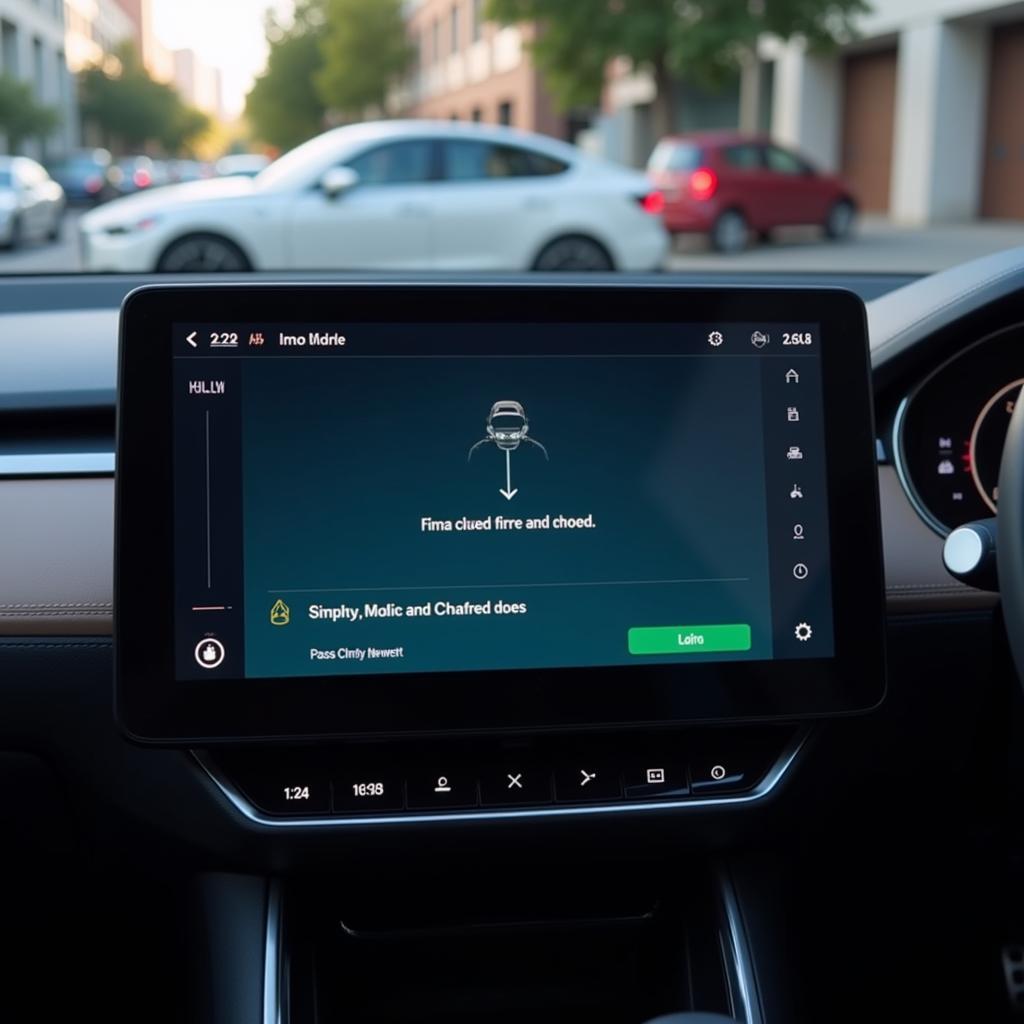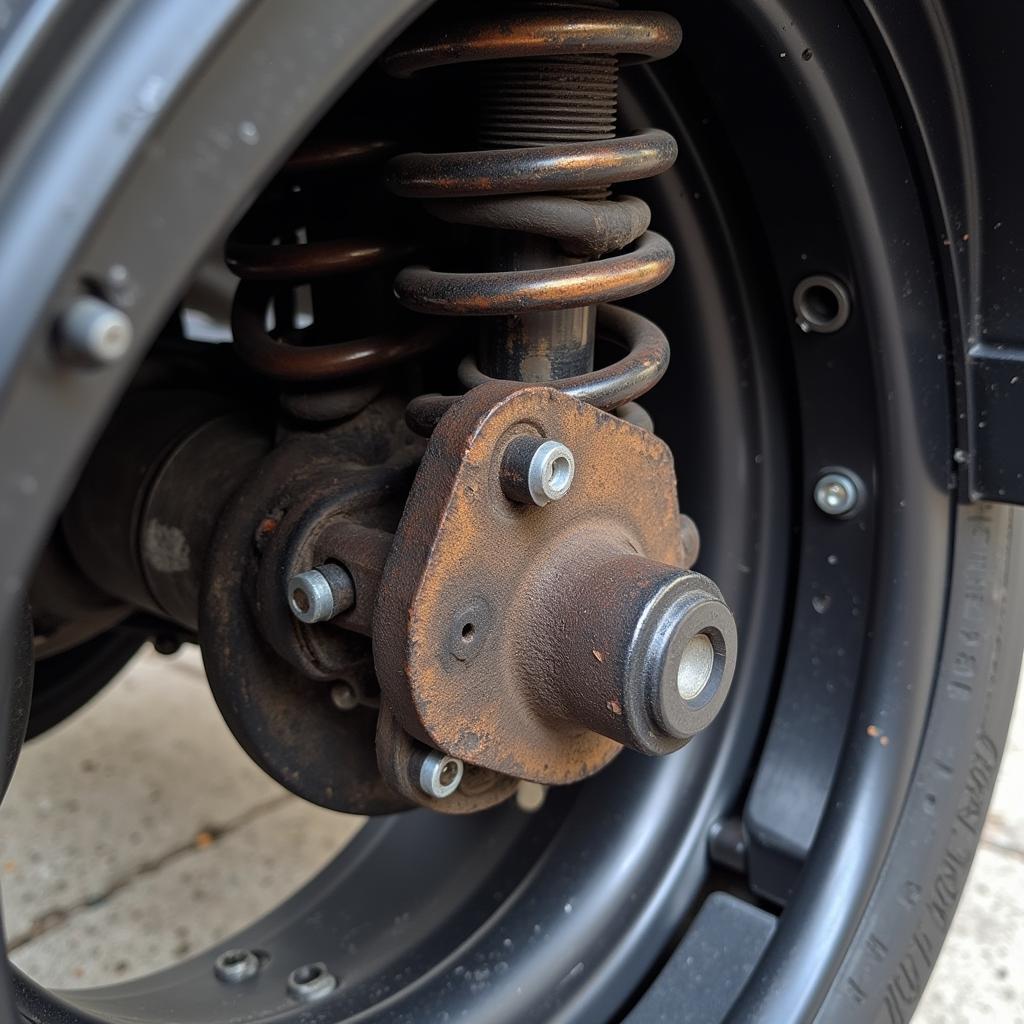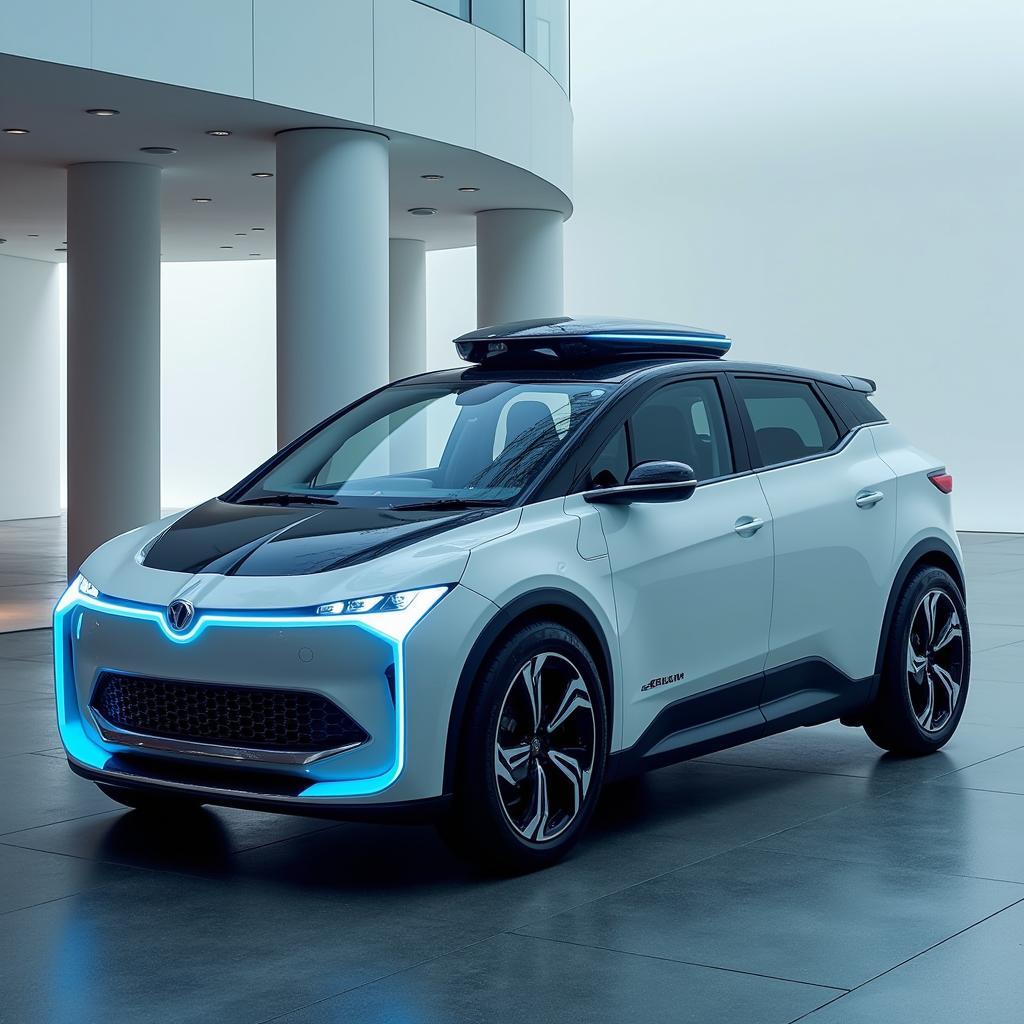Chinese electric vehicles (EVs) have made significant strides in recent years, boasting impressive technology, affordability, and stylish designs. However, alongside their rapid growth, certain problems have emerged, impacting consumer confidence and raising questions about long-term reliability. Addressing these issues is crucial for the continued success of Chinese EVs in the global market.
Are Chinese electric cars reliable? That’s a question many potential buyers are asking. While some models have proven dependable, others have experienced issues ranging from battery performance to software glitches. Understanding these problems is key to making informed decisions and ensuring a positive ownership experience. Similar to great wall cars problems, some Chinese EV manufacturers have faced criticism for quality control issues.
Common Battery Concerns in Chinese EVs
Battery performance is a critical aspect of any electric vehicle, and Chinese EVs are no exception. Several common battery-related problems have been reported:
- Range anxiety: While battery technology is constantly improving, some Chinese EV models still suffer from limited range, especially in real-world driving conditions. Factors like temperature and driving style can significantly impact the actual range achieved.
- Charging infrastructure: The availability of charging stations, especially fast chargers, remains a concern in many regions. This can limit the practicality of Chinese EVs for long-distance travel.
- Battery degradation: Like all batteries, those in EVs degrade over time, leading to reduced range and performance. Some Chinese EV owners have reported faster-than-expected battery degradation, raising concerns about long-term ownership costs.
Software and Technology Glitches
While Chinese EVs often boast advanced technology and features, software glitches and other technological issues have been reported:
- Infotainment system problems: Some owners have experienced issues with the infotainment system, including freezing, lagging, and connectivity problems.
- Over-the-air (OTA) updates: While OTA updates are designed to improve functionality and address bugs, some Chinese EV owners have reported problems with the update process, including failed updates and software instability.
- Advanced driver-assistance systems (ADAS): Some Chinese EVs equipped with ADAS features, such as lane departure warning and adaptive cruise control, have experienced malfunctions, raising safety concerns.
What are the common software issues with Chinese EVs? Infotainment system problems, OTA update issues, and ADAS malfunctions are among the most frequently reported concerns.
 Chinese EV Infotainment System Glitch
Chinese EV Infotainment System Glitch
Build Quality and Component Issues
Build quality and component reliability are crucial factors in the long-term durability of any vehicle. Some Chinese EV owners have reported concerns in these areas:
- Panel gaps and fit and finish: Inconsistent panel gaps and poor fit and finish have been reported in some models, suggesting potential quality control issues during manufacturing.
- Suspension and steering components: Premature wear and tear of suspension and steering components have been reported in some Chinese EVs, leading to increased maintenance costs.
- Electrical system problems: Issues with electrical components, such as wiring harnesses and sensors, have been reported, potentially causing malfunctions and safety concerns.
How can I address build quality issues in my Chinese EV? Documenting the issues with photos and videos and contacting the manufacturer or dealer are crucial first steps in addressing build quality concerns. For similar issues with other car brands, you could refer to lotus cars financial problems. This might offer insights into how other manufacturers handle similar situations.
 Chinese EV Suspension Component Issue
Chinese EV Suspension Component Issue
Addressing the Problems and Looking Ahead
Addressing these problems is critical for the continued growth and acceptance of Chinese EVs. Manufacturers need to prioritize quality control, invest in research and development, and improve customer support. Increased transparency and communication with consumers will also be essential in building trust and confidence.
Do Chinese electric car manufacturers offer warranties? Yes, most Chinese EV manufacturers offer warranties on their vehicles and batteries, providing some level of protection against defects and malfunctions.
 Chinese EV Future Technology
Chinese EV Future Technology
Conclusion
While Problems Of Chinese Electric Cars exist, they are not insurmountable. By addressing these challenges head-on, Chinese EV manufacturers can continue to innovate and improve their products, solidifying their position in the global EV market. For further assistance or if you require expert advice on your specific situation, you can reach us at AutoTipPro at +1 (641) 206-8880 or visit our office at 500 N St Mary’s St, San Antonio, TX 78205, United States. We’re here to help you navigate the evolving world of electric vehicles.
FAQ
- Are Chinese electric cars cheaper than other EVs? Generally, Chinese EVs tend to be more affordable than their counterparts from established brands.
- What is the average range of a Chinese electric car? The range varies significantly depending on the model and battery size, but many offer ranges comparable to other EVs.
- Are Chinese electric cars safe? Safety standards are improving, but it’s essential to research specific models and their safety ratings.
- What are the warranty options for Chinese electric cars? Warranty terms vary by manufacturer, so it’s essential to check the specific details for the model you’re considering.
- Where can I find charging stations for Chinese electric cars? Charging infrastructure is expanding, and many apps and websites provide information on charging station locations.
- Are Chinese electric cars environmentally friendly? While EVs are generally considered more environmentally friendly than gasoline cars, the environmental impact of battery production and disposal is a factor to consider.
- Can I import a Chinese electric car to my country? Import regulations vary by country, so it’s essential to check the specific rules and regulations in your region.






Leave a Reply